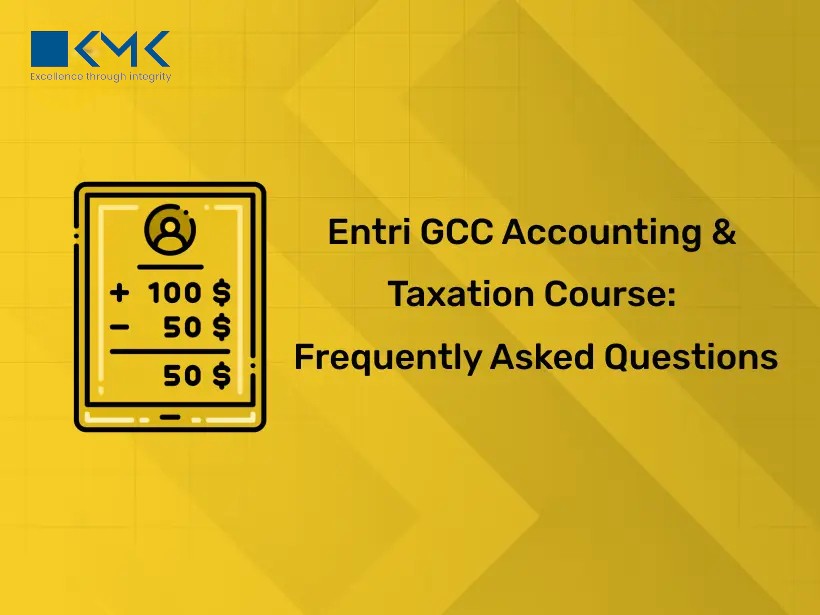As multinationals doing business in the Gulf Cooperation Council (GCC) region gear up for 2025, digital tax compliance will be among the top challenges. With evolving VAT rules, corporate tax reforms, and digital‑reporting mandates, staying ahead is more than just good practice—it’s essential.
If you want reliable support, especially in gcc accounting and taxation, KMK Ventures’ Global Capability Center (GCC) for Accounting & Finance Services is a resource many enterprises are turning to. Their experience and infrastructure make them well‑suited to help with these changes.
What Are the Big Trends in GCC Taxation & Digital Regulation?
Before diving into compliance, it helps to understand the landscape. Here are some of the major trends shaping GCC tax in 2025:
-
Expansion of VAT / Indirect Tax Rules: Countries like UAE, Saudi Arabia, Oman, and others are clarifying and expanding VAT laws—especially for digital goods, online services, cross‑border transactions, and imported services.
-
E‑invoicing & Electronic Reporting Mandates: Several GCC countries are rolling out electronic invoicing systems, structured digital invoices, and mandatory integration into tax authority platforms.
-
Corporate Tax Reforms & Global Minimum Tax: Multinationals must watch changes in corporate tax frameworks, including minimum top‑up taxes, investment fund regulations, ultimate beneficial owner (UBO) disclosures, and limits on interest deductions.
-
Regulatory Clarifications & Penalties: With new rules come stricter enforcement, penalties, fines, and more rigorous audits.
Key Digital Tax Compliance Areas for Multinationals in 2025
So, what should multinationals focus on to ensure smooth digital tax compliance in the GCC?
| Area | What Multinationals Must Do | Why It Matters |
|---|---|---|
| Digital Goods & Online Services VAT | Determine if your offerings (software, streaming, cloud, etc.) are taxable; classify B2B vs B2C correctly; for non‑resident suppliers, understand if you must register for VAT locally. | Misclassification can lead to under‑charging or over‑charging VAT, penalties, or loss of Input VAT claims. |
| E‑Invoicing & Electronic Reporting | Upgrade or adapt accounting/ERP systems; comply with technical specs of tax authorities’ platforms; ensure invoices include required data; plan for wave roll‑outs. | Non‑compliance may block refunds or trigger fines. |
| Corporate Tax / Transfer Pricing / Minimum Tax | Review your legal entity structures; ensure transfer pricing documentation is rigorous; anticipate new minimum tax obligations; monitor interest deduction limits. | Helps avoid double taxation, unexpected liabilities, or cross‑border tax surprises. |
| Data & Documentation Compliance | Keep precise records (export documentation, virtual asset treatment, multiple component supplies); maintain audit trails; prepare for stricter tax authority reviews. | Helps secure zero‑rating, compliance, and favourable treatment under the law. |
| Local Registration & Risk Assessment | Assess where VAT registration or compliance obligations apply; map financial and reputational risk. | Operating without required registration or ignoring local rules is an easy way to incur penalties. |
Why Enterprises Use GCC for Accounting & Finance Services Providers (Like KMK Ventures)
To satisfy these obligations, multinationals often partner with financial service providers or set up Global Capability Centers (GCCs) that specialise in accounting, tax, and finance process management. Here are reasons this works:
-
Cost‑Efficiency & Scale: Outsourced or centralized services reduce costs while leveraging economies of scale. KMK Ventures has skilled professionals in accounting, tax, audit & financial advisory.
-
Technical & Legal Expertise: Knowing local tax laws, VAT executive regulations, digital‑reporting technical specs, and compliance requirements is vital.
-
System & Infrastructure Readiness: Robust accounting systems, data security (e‑invoicing, encryption, integrations), and the ability to integrate with tax authorities’ platforms are key.
-
Scalability & Flexibility: As rules tighten or vary by GCC country/state, providers help you scale up or modify operations without disruptions.
For more details on partnering with a GCC‑based finance & accounting centre, see: gcc accounting and taxation
Questions Multinationals Should Be Asking Now
To be proactive, here are some questions your leadership, tax, compliance, or finance teams should ask in 2025:
-
Which GCC jurisdictions do we operate in, and how do their VAT/digital tax rules differ?
-
Do we supply digital goods or online services to consumers or businesses in the GCC? Are we compliant with local VAT registrations and reverse‑charge mechanisms?
-
Are our invoicing systems capable of producing structured e‑invoices as required by local law?
-
Do we have strong transfer pricing documentation, beneficial ownership disclosure, and readiness for minimum tax rules?
-
Is our accounting and finance back‑office ready to handle increased audits, stricter record‑keeping, and tighter documentation?
-
Could working with a GCC accounting & taxation specialist reduce risk and help us stay compliant cost‑effectively?
Practical Next Steps for Compliance
-
Conduct a Tax / Digital Goods Compliance Audit: Map all digital offerings, sales channels, and customer locations.
-
Upgrade ERP / Accounting / Invoicing software: Add modules for e‑invoicing, VAT reporting, and data export.
-
Train or hire local/regional tax experts: Ensure knowledge of both global standards (OECD, Pillar Two) and local GCC rules.
-
Review contracts (supplier, customer) to ensure VAT clauses, digital service definitions, and liability are clear.
-
Monitor regulatory developments continuously: New clarifications and wave‑based mandates for digital reporting are being issued.
Conclusion
Digital tax compliance in the GCC for 2025 is not just about ticking boxes—it’s about anticipating change, adapting processes, managing risk, and ensuring your finance functions keep pace with regulations. Multinationals that invest early—reviewing digital service delivery, complying with VAT and e‑invoicing rules, and navigating corporate tax reforms—will avoid penalties, protect margins, and maintain competitive edge.
For expert guidance in gcc accounting and taxation, partnering with KMK Ventures’ Global Capability Center can help you stay compliant efficiently and effectively.
